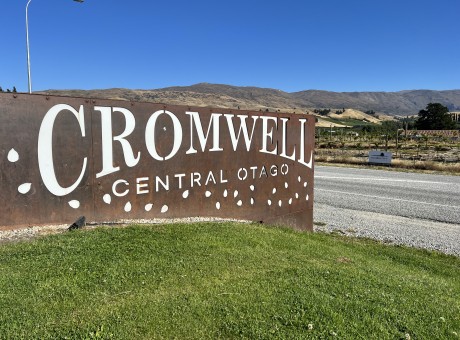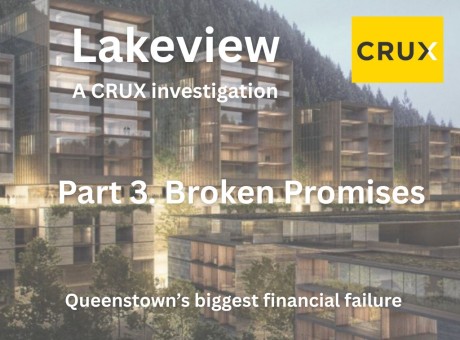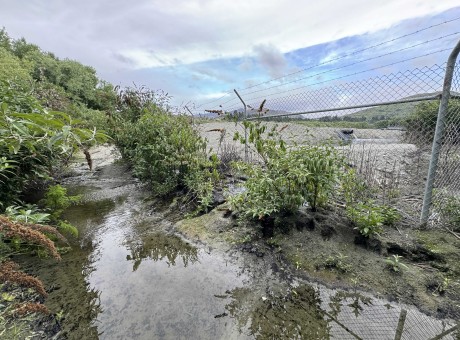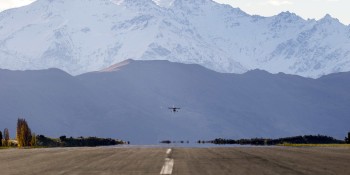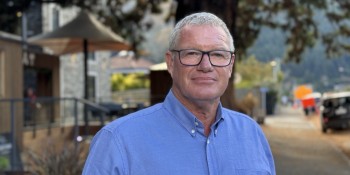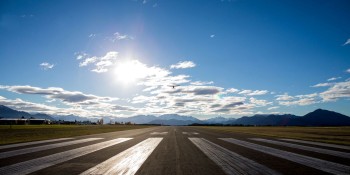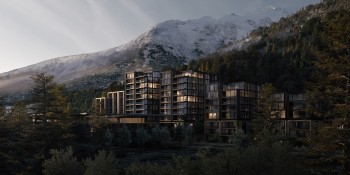Reports of Queenstown’s death could be premature
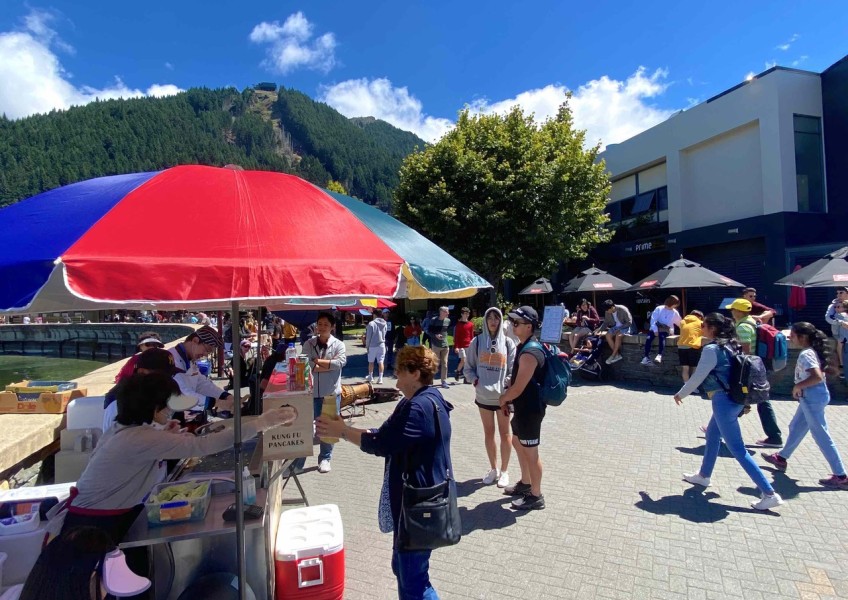
Mayor Jim Boult’s concerns for the survival of Queenstown, as reported earlier this week, seem to be balanced by a wealth of good news from a dazzling variety of sources. Sources that don’t always have any direct links to tourism – and some that do.
There are calls from our mayor and tourism leaders for fresh help from the government in the form of a targeted wage subsidy, as the normally heaving international summer season is reduced to a trickle of domestic tourists.
But many residents and business owners are now discovering that the hardship resulting from COVID-19 could just be the impetus needed for the region to reimagine a future without a reliance on international tourism.
Multiple case studies are emerging of businesses adapting to a brave new world, and the residential construction industry is booming as many Kiwis living offshore or in other parts of the country scramble to build somewhere to escape from future lockdowns – or build a new life.
Queenstown co-working space Mountain Club says demand is high - an indication that although tourism is struggling, there’s an influx of entrepreneurs arriving in the district.
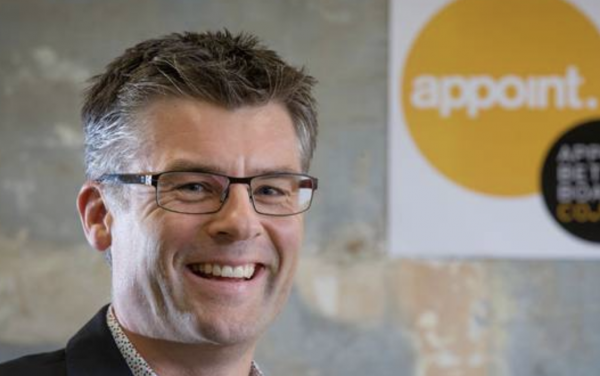
Simon Telfer - change takes time.
International commodities trading group Ligar International opened in Queenstown a year ago and has more than tripled its staff, evidence of the COVID-prompted trend towards corporates embracing remote working, with the added bonus of tempting employees to an attractive lifestyle.
The council’s longer term recovery group chair Simon Telfer agrees that in order to be resilient the region must move towards a population with incomes from multiple sectors, but he cautions that the shift from a “mono economy” doesn’t happen overnight.
“The focus on tourism is many years in the making, there is no magic wand to transform in six months,” Telfer says.
Like the region’s early gold mining sector, tourism could also be viewed as extractive, and a sustainable future relies on a move to a lower carbon economy and supporting regenerative initiatives, he says.
The group is fleshing out big picture ideas to help the region diversify - including a science centre in Glenorchy, a local angel investor network and the development of a solar power grid in Queenstown. But most businesses don’t have time to wait for solutions from the lumbering bureaucratic machine, finding ways not only to survive with the foreign tourist tap turned off, but to thrive.
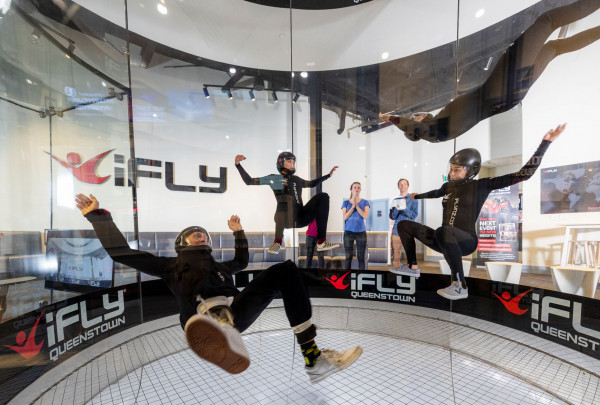
Queenstown-based indoor skydiving business iFly dropped its pricing from $149 to $79 during lockdown last year after it lost 80% of its customers.
With the wage subsidy as a buffer, the company decided to run the special and see what happened. Eleven months later they’re still charging the reduced price and have kept all of their staff.
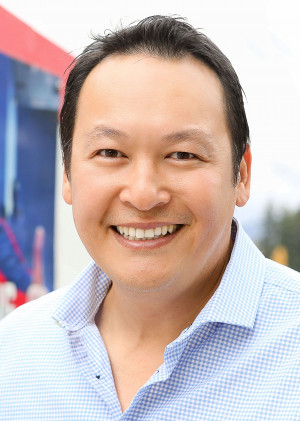
Matt Wong, General Manager of iFly
“If your product suits the Kiwi market in terms of pricing, around the $100 mark, it’s good for families, it’s a novel business and Kiwis haven’t done it before then you’re doing OK,” General Manager Matt Wong says.
The company opened two and a half years ago and had its biggest revenue month in July last year - a result of pricing to the domestic market and being a small business able to pivot quickly.
“We’re not making massive money but we’re going to survive,” Wong says.
The company has diversified by offering up its wind tunnel to professional skydivers for training, as well as building relationships with education institutes around the country which have sent science students to learn about the physics of flight, geography students to learn about the demographics of Queenstown and how its been affected by COVID, and tourism students to talk about leadership and resilience and how iFly’s weathered the storm.
Wong acknowledges his company is in the minority, saying he’s lucky to have a business that’s family-orientated. “The backpacker market, they’re doing it really tough. Restaurants, hospitality and accommodation… I know very well we’re going to see businesses going under in the next quarter or so.”
However, the can-do attitude has emerged in the hospitality industry too.
Nick Aubrey bought Wanaka cafe and local institution Kai Whakapai after COVID hit last year. Aubrey’s quick to acknowledge that he benefits from Kai’s strong local following, and the simple model built by the previous owners - “Looking after people and not charging crazy prices.”
Aubrey says COVID has provided time for business owners to focus on ensuring sustainability. “That’s quality, training, culture, service - all the back end things that develop the business for the long term,” he says.
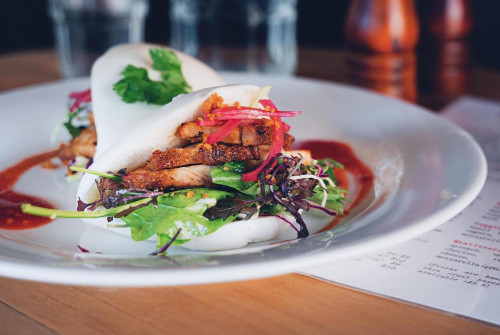 He says a positive effect of the pandemic is that it lifts the standards in hospitality across the board - he’s seen a big increase in local establishments advertising events and live music and marketing themselves on social media, when many have never needed to in the past.
He says a positive effect of the pandemic is that it lifts the standards in hospitality across the board - he’s seen a big increase in local establishments advertising events and live music and marketing themselves on social media, when many have never needed to in the past.
Others in Wanaka are in dire straits - backpacker-targeted Mint Bar closed down recently and many others are struggling.
“People might forget that even if it looks OK, a place may not be making money. It’s slim margins, all it takes is for things to slow down,” Aubrey says.
For the big players in the Southern Lakes tourism industry such as jet boating, canyoning and scenic flights, relying on Kiwis is not an option. At this time of year - coinciding with Chinese New Year - Queenstown is normally humming with deep-pocketed visitors. Now the companies that target them are downsizing or closing down completely, with some planning to reopen in winter and offer ski rentals in the hope that plenty of New Zealanders will head to the slopes.
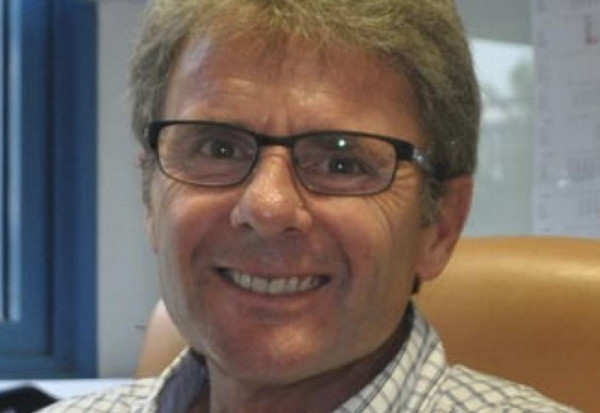
Totally Tourism's Mark Quickfall
Boss of Queenstown’s Totally Tourism, Mark Quickfall, says if the government’s serious about keeping people in jobs it needs to consider a further wage subsidy. “Otherwise we are going to see more and more unemployment.”
“These businesses have contributed to the economy for many years and it’d be very sad to see their demise.”
Construction booms as Kiwis scramble for “a piece of paradise”
While tourism, accommodation and hospitality is hurting, the region’s residential construction sector is the busiest it’s been in five years, according to Fraser Mackenzie of David Reid Homes - Queenstown.
“We really need construction right now, if we don’t have it right now this town would be in mayhem, it’s the only way to keep jobs going around the place,” Mackenzie says.
He’s seen a rush of people wanting to build on sections they may have had for five to 15 years.
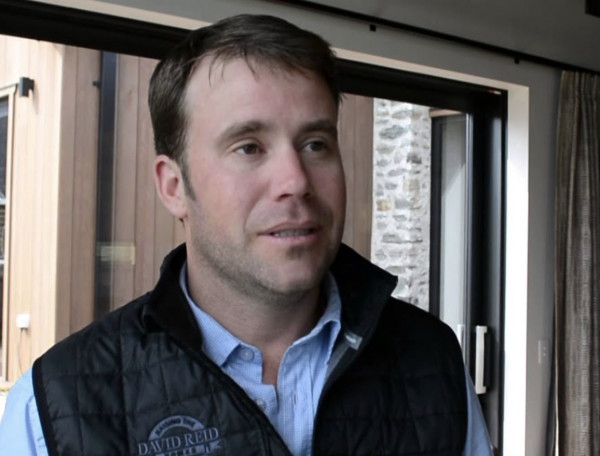
Fraser Mackenzie of David Reid Homes Queenstown
MacKenzie says the money’s coming from a mixture of Kiwis overseas and in big centres like Auckland, Wellington and Christchurch, with people selling their businesses and realising they either want to downsize or pounce on a “piece of paradise” in the event of another lockdown.
“There are Kiwis returning because of COVID - people fleeing New York - and looking to head back to the old days of a couple of acres, the lifestyle block.
“Families more so are wanting that bit of extra space to get outside and play and not feel like they’re locked indoors.”
Mackenzie says the council needs to look after the residential construction sector and help developments go through, rather than hinder them.
“People say the prices will go out of control, but it comes down to how much of an issue it is to get through the council, they’ve got to get the ball rolling.
“While the rest of the world is in dire straits, Queenstown is looking hot as a location to move to.”
Mackenzie hopes the town will continue to attract permanent residents who either have well-paying jobs they’ve realised they can do remotely, or are retirees with cash to spend on wining and dining and outdoor activities.
“Across the board Queenstown is getting a good mixture of young families, good working class right through to retirement, which is very important for a town to get it moving in the right direction.
“You can’t favour one industry, as we can see that doesn’t work.”
** Crux approached Mayor Jim Boult for comment but he was unavailable.





